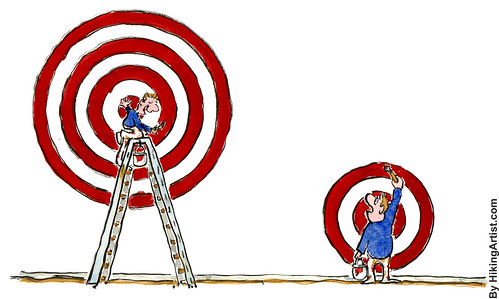Let’s face it: we’re all social animals and we want to be liked by others. That’s perfectly fine, as long as you don’t become desperate for people’s approval and feel shitty when someone doesn’t like you. It’s cool to want to know how to make people like you.
One of the central benefits of having good people skills is that you can increase your likeability factor. And the more likeable you can be my friend, the more options you have in your social life and beyond.
I’ve always been amazed by the ability to sweep people off their feet with your very presence. It’s one of the things that got me into improving my people skills more than a decade ago, and later into helping others do the same through communication coaching.
During this time, I’ve learned a thing or two on how to make people like you.
How Not To Make People Like You
 There is one way to make people like you that’s very popular and I’m adamantly against. That is being really nice with people and doing nice things for them all the time. Sure, you can get some people’s approval be being a nice guy or a nice girl. However, there are huge downsides to this strategy.
There is one way to make people like you that’s very popular and I’m adamantly against. That is being really nice with people and doing nice things for them all the time. Sure, you can get some people’s approval be being a nice guy or a nice girl. However, there are huge downsides to this strategy.
First of all, as many nice people exemplify, having a nice behavior towards others all the time often projects neediness and insecurity. That doesn’t make someone like you, it makes them either avoid you (if you’re lucky) or use you (if you’re unlucky).
Second of all, in order to keep people’s appreciation with this strategy, you have to keep doing nice things for them. Eventually, all the effort you put into pleasing the people in your life by being nice turns into a huge pain in the ass for you.
Want to know how to make people like you in the best way possible? Make them like you for who you are, not for what you do for them. This idea is a huge mental shift for many and it puts the focus on developing edgy people skills and a charismatic personality, not on being nice all the time.
Be a Positive Presence
It is a psychological fact that emotions are contagious, both positive and negative ones. When you can make people feel good, in a way they reward you for this by liking you.
Interestingly enough, the most effective way to make others feel good is not by giving them cheesy compliments or shallow encouragements, but by being positive yourself. Therefore, learning how to make people like you goes hand in hand with learning how to manage your emotional state.
A very helpful exercise for getting yourself in a positive state is simply faking it. You see, in your psychology, everything is connected: your thoughts, your emotions and your body. Walk, move and talk like a person feeling good and you’ll elicit that very state. You’ll feel positive because you act positive, and you’ll transmit it to others.
Share Yourself
There is some fascinating research emerging lately in the field of social psychology that points out one of the simplest and most powerful answers to how to make people like you is to open up and share yourself.
Not only that we tend to feel more comfortable with people who share themselves, but we also like them more. Thus, it’s not surprising that timid people are often not very likeable. They don’t put themselves out there.
Listening is a very important people skill to have, but so is opening up. Talk about yourself; put yourself out there in an authentic manner, even if you may find it hard at first. You’ll notice how people will grab on to what they know about you and like you more.
If you have a hard time sharing yourself, it’s probably because you lack social confidence. In this case, all I can say is watch this presentation, because you’ll learn from me in it how to overcome this problem, permanently.
Add Value in Every Conversation
There is a much better mode to add value in people’s lives than being very nice. It’s through the style you make conversation. Want you want is for people to end a conversation with you better off than they were when they started it.
There are many ways to do this. You can be the wise person who inspires others and talks about interesting things, you can be the funny person who gives a humorous spin to everything and gets people laughing.
Find the ways of adding value in conversation that fit well with your personality and develop those. Ultimately, people want to interact the most with those who can offer value, and by being a funny, witty, exciting or wise person you have an endless stream of value you can provide effortlessly.
Knowing how to make people like you permits you to develop very sharp people skills. When you can push people’s buttons through your personality, you open the doors towards a lifestyle of abundance that most people only dream of.
Image courtesy of Kam







 Jonny Gibaud
Jonny Gibaud 